09 Mar2023
By Amy Kline
On Thursday, March 30, the New Jersey Association of Colleges for Teacher Education (NJACTE) will be hosting our Annual Day of Assessment with the theme, “Authenticity and Improvement: Reimagining Assessment in a Changing Landscape.” The conference is free to attend and open to all AACTE affiliate members and their professional networks. Register now.
A Pre-Conference Session “8 Approaches to Transform Your Self Study into Meaningful Reflections” by our generous sponsor HelioCampus will begin at 1:00 p.m. The pre-conference session will be followed by the opening presentation “Assessment and Continuous Improvement: We’re Doing Everything Right, But Are We Doing the Right Things?” with panelists from The College of New Jersey and Rutgers University – New Brunswick.
11 Oct2022
By Alexander Cuenca
In 2021, Indiana joined the Consortium for Research Based and Equitable Assessments (CREA), an initiative by the American Association of Colleges for Teacher Education to examine state-level certification assessment scores and their impact on promoting a diverse educator workforce. Our state team consisted of faculty from Indiana University’s School of Education, representatives from the Indiana Department of Education, and school district administrators from Indiana’s public schools. Together, we looked at our state-level data on entrance and content area licensure exams and reached the same conclusion many have reached for decades in Indiana and across the United States: significant pass rate gaps between white and Black teacher candidates.
20 Apr2022
By Weade James
 Performance assessments that serve as a gateway to teacher preparation programs (i.e., Praxis Core, similar state-developed assessments) are intended to measure students’ basic skills in reading, writing, and mathematics. While these skills have no correlation to a candidate’s ability to be successful in a preparation program or relationship to effective teaching, many states require educator preparation programs (EPPs) to ascribe to the use of entrance assessments as a perquisite for program admissions.
Performance assessments that serve as a gateway to teacher preparation programs (i.e., Praxis Core, similar state-developed assessments) are intended to measure students’ basic skills in reading, writing, and mathematics. While these skills have no correlation to a candidate’s ability to be successful in a preparation program or relationship to effective teaching, many states require educator preparation programs (EPPs) to ascribe to the use of entrance assessments as a perquisite for program admissions.
The AACTE Consortium for Research-Based and Equitable Assessments (CREA) is examining how cut scores are being set for these assessments and its impact on aspiring teachers and the teacher-of-color pipeline. In its recent infographic, The Impact of Program Entrance Assessments on Aspiring Teachers and the Teacher of Color Pipeline, AACTE highlights key themes and findings from focus groups held with in-service teachers, teacher candidates of color at various institutions, and faculty of historically black colleges and universities (HBCUs).
22 Feb2022
By Kaitlyn Brennan
 As we head into Congressional recess, behind the scenes things are heating up surrounding the passage of an FY22 appropriations bill which includes historic increases for education funding. The Senate passed a stop-gap funding measure on Thursday that, once signed by the President will give Members and their staff another three weeks to cement a deal on FY22. The proposed increases to education funding are critical in supporting rebuilding and diversifying the educator pipeline-now is the time to make sure your voices are heard.
As we head into Congressional recess, behind the scenes things are heating up surrounding the passage of an FY22 appropriations bill which includes historic increases for education funding. The Senate passed a stop-gap funding measure on Thursday that, once signed by the President will give Members and their staff another three weeks to cement a deal on FY22. The proposed increases to education funding are critical in supporting rebuilding and diversifying the educator pipeline-now is the time to make sure your voices are heard.
16 Feb2022
By NCACTE Advocacy and Policy Committee, EdNC.org
This perspective, written by the North Carolina Association of Colleges for Teacher Education (NCACTE) Advocacy and Policy Committee, originally appeared on NdNC.org and is reprinted with permission.
 The purpose of this update is to provide feedback to educational partners on the North Carolina Association for the Colleges of Teacher Educator’s (NCACTE) collective perceptions of the current policy discussions related to revising the teacher licensure process in North Carolina. These proposals were originally suggested by the Human Capital Roundtable and have been reviewed over the last year by PEPSC subcommittees. This document was created by the NCACTE Advocacy & Policy Committee, almost all of whom serve on one of the subcommittees.
The purpose of this update is to provide feedback to educational partners on the North Carolina Association for the Colleges of Teacher Educator’s (NCACTE) collective perceptions of the current policy discussions related to revising the teacher licensure process in North Carolina. These proposals were originally suggested by the Human Capital Roundtable and have been reviewed over the last year by PEPSC subcommittees. This document was created by the NCACTE Advocacy & Policy Committee, almost all of whom serve on one of the subcommittees.
After spending many months in meetings, reviewing documents, and listening to feedback from all stakeholders involved, we have synthesized our thoughts here. While we believe this work has progressed, there are still several areas where we believe additional work is needed. We would like to thank PEPSC for this work and continue to offer our service as these issues evolve. We ask for the reader’s indulgence in reviewing this entire document carefully.
In our discussions, three priorities emerged (in no particular order):
26 Jan2022
By AACTE
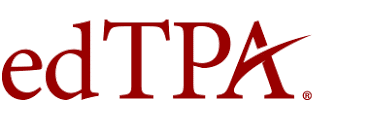 For nearly a decade, AACTE hosted the informational website containing assessment materials and resources to support the exploration and implementation of the edTPA as a communication partner with Stanford University and the Evaluation Systems group of Pearson.
For nearly a decade, AACTE hosted the informational website containing assessment materials and resources to support the exploration and implementation of the edTPA as a communication partner with Stanford University and the Evaluation Systems group of Pearson.
Beginning in January 2022, AACTE transitioned out of its role as a communication partner and edTPA users are now being supported by the Evaluation Systems group of Pearson.
24 Nov2021
By Tammy Moore
AACTE’s Consortium for Research-Based and Equitable Assessments (CREA) project recently released a framing paper titled The History, Current Use, and Impact of Entrance and Licensure Examinations Cut Scores on the Teacher-of-Color Pipeline: A Structural Racism Analysis. The paper addressed the following questions: (1) How are standardized entrance and licensure tests being used as a gateway into the profession? (2) Who determines cut scores for these tests? and (3) What is the historical significance and implications of these tests on the diversity of the profession today?
Lindenwood University represents one of fourteen lead institutions that comprise the CREA project. Tammy Moore, director of certification and field/clinical experiences at Lindenwood, reflects on the effects of entrance assessment requirements at her institution and her institution’s plans to ensure equitable access for all students who choose to pursue teacher education.
 Why did Lindenwood University pursue membership in the CREA project?
Why did Lindenwood University pursue membership in the CREA project?
Lindenwood University – College of Education and Human Services (COEHS) pursued the CREA project to participate in an initiative designed to support our continual efforts to recruit and retain teacher candidates of color. In direct alignment with Lindenwood COEHS commitment to “… an open, diverse, and inclusive learning environment that nurtures the growth and development of all …” the CREA project embodies our commitment to diversifying the teaching profession.
15 Nov2021
By Lana Collet-Klingenberg
AACTE’s Consortium for Research-Based and Equitable Assessments (CREA) project recently released a framing paper titled The History, Current Use, and Impact of Entrance and Licensure Examinations Cut Scores on the Teacher-of-Color Pipeline: A Structural Racism Analysis. The paper addressed the following questions: (1) How are standardized entrance and licensure tests being used as a gateway into the profession? (2) Who determines cut scores for these tests?, and (3) What is the historical significance and implications of these tests on the diversity of the profession today?
University of Wisconsin-Whitewater (UWW) represents one of fourteen lead institutions that comprise the CREA project. Lana Collet-Klingenberg, professor and interim associate dean at UWW recently reflected on the effects of entrance assessment requirements at her institution and her institution’s plans to ensure equitable access for all students who choose to pursue teacher education.
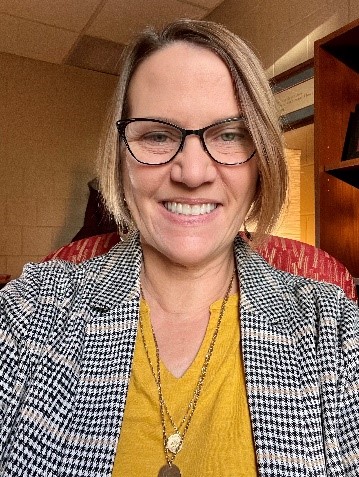 Why did University of Wisconsin – Whitewater pursue membership in the CREA project?
Why did University of Wisconsin – Whitewater pursue membership in the CREA project?
Increasing the diversity in our educator workforce is a high priority for our state and our institution. By many measures Wisconsin is failing when it comes to equity in our schools and in our educator workforce. As the EPP that prepares the most first-time licensed teachers in the state, we are interested in any initiative that advances the cause. In addition, in an effort to lessen the number of barriers for prospective teachers, our state changed rule, providing EPP with flexibility regarding what measures we use for admission. In our state, students can meet requirements with GPA OR test scores. Our state is continuing to address removal of barriers by recently changing rule again to allow for alternate measures to GPA for licensure (which, in turn, will allow greater flexibility with admission requirements). I believe our inclusion in the project is a means of sharing these avenues with states still requiring standardized test performance as the primary admission pathway.
15 Nov2021
By Meghan Grenda
As the fall semester creeps to a close, it’s easy to forget about all that is available to you via your AACTE membership. Check out these member resources:
Resource Library – Have you accessed the AACTE Resource Library lately? If so, you have probably noticed a few changes, including a single sign on system. AACTE has completed its database migration and with that you will find a seamless way to transition between your AACTE profile and the improved AACTE Resource Library. Feel free to view some of the latest resources below:
25 Oct2021
By Grady Wilburn and James Elias
The reading and mathematics scores of 13-year-old students fell between 2012 and 2020—the first time in the almost 50-year history of the National Assessment of Educational Progress (NAEP) long-term trend (LTT) assessment—according to results released today by the National Center for Education Statistics (NCES). The performance of 9-year-olds remained the same in both subjects compared to 2012.
In both age groups and subjects, the scores of lower-performing students declined since 2012, the previous assessment year, mirroring patterns observed in other subjects assessed by NAEP, also known as The Nation’s Report Card.
22 Oct2021
By Jane Fusco
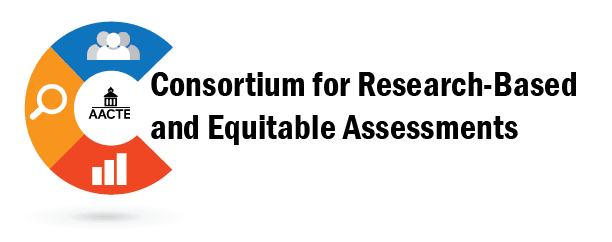
The University of Rhode Island’s Alan Shawn Feinstein College of Education and Professional Studies will represent the state as a lead institution in the American Association of Colleges for Teacher Education’s Consortium for Research-Based and Equitable Assessments, an initiative funded by the Bill and Melinda Gates Foundation that engages 14 states in a study of state-level tests and qualifying scores for entry into educator preparation programs.
URI will collaborate with the Rhode Island Department of Education, Rhode Island College, Central Falls School District, and Pawtucket School Department to examine state data and practices, as well as engage in quarterly convenings to inform guidelines and recommendations for setting qualifying cores for educator preparation program entry and exit.
22 Sep2021
By Weade James
 The Consortium for Research-Based and Equitable Assessments (CREA) is seeking your help to recruit teacher candidates, teachers, and faculty for its upcoming focus groups. The Consortium, which is comprised of educator preparation programs (EPPs) and state and local education agency representatives across 14 states, is examining the processes and considerations that states use to determine cut scores for entrance (i.e., Praxis Core) and teacher licensure examinations.
The Consortium for Research-Based and Equitable Assessments (CREA) is seeking your help to recruit teacher candidates, teachers, and faculty for its upcoming focus groups. The Consortium, which is comprised of educator preparation programs (EPPs) and state and local education agency representatives across 14 states, is examining the processes and considerations that states use to determine cut scores for entrance (i.e., Praxis Core) and teacher licensure examinations.
Through data collection of key stakeholders, analysis of trends and policies, and shared learning, the Consortium will produce recommendations and guidelines to establish equitable criteria for setting qualifying scores and model state policies that promote equity and diversity in the profession.
12 Aug2021
By Jacqueline Rodriguez
|
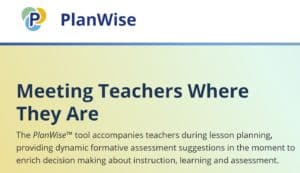 This fall, AACTE is excited to continue supporting an opportunity for members to try out the PlanWise™ tool, a Chrome Extension developed by ETS and focused on delivering formative assessment practices and strategies. The PlanWise™ tool meets teachers where they are in a number of ways, including providing suggestions for formative assessment strategies to teachers and pre-service teachers while they are lesson planning in Google Docs. This fall, AACTE is excited to continue supporting an opportunity for members to try out the PlanWise™ tool, a Chrome Extension developed by ETS and focused on delivering formative assessment practices and strategies. The PlanWise™ tool meets teachers where they are in a number of ways, including providing suggestions for formative assessment strategies to teachers and pre-service teachers while they are lesson planning in Google Docs.
Five AACTE member institutions have participated in introductory sessions and have determined that they are interested in trying out the PlanWise™ tool with their pre-service teachers. We are welcoming an additional five institutions to try out the tool this fall.
|
20 Jul2021
By Sarah Wood
This article originally appeared in Diverse Issues in Higher Education and is reprinted with permission.
The “fragility of our democracy” was made evident by the events of Jan. 6 at the United States Capitol, which was incited by rhetoric around election fraud, according to Harvard University’s James Bryant Conant University Professor Dr. Danielle Allen.
As misinformation and government-related conspiracy theories continue to divide the nation, the Educational Testing Service (ETS) and the Educating for American Democracy initiative co-hosted a webinar on Tuesday to discuss the need to promote civic readiness within the K-12 education system.
The event, “Monitoring Civic Learning Opportunities and Outcomes: State of the Field and Future Directions,” noted inadequate support for civics education from policymakers and education leaders.
12 Jul2021
By Caitlin Kanaly
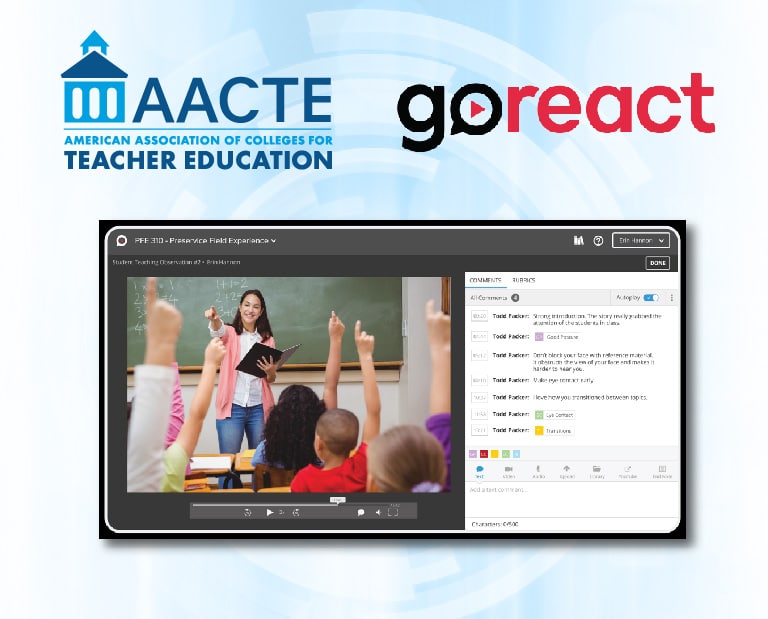 Have you tried using video in your methodology courses? As the place where student teachers connect theory to practice, methods courses are perfect for video—whether you teach in person or online.
Have you tried using video in your methodology courses? As the place where student teachers connect theory to practice, methods courses are perfect for video—whether you teach in person or online.
Many teacher ed programs relied on video for remote instruction during the pandemic, but some used it long before 2020—and for good reason. Research shows that video plus feedback improves student skills. In methods courses, video gives you a way to
- Show students what theoretical methods look like in practice.
- Enable students to practice methods in small groups.
- Record and give personalized feedback as students apply methods in the field.







 Performance assessments that serve as a gateway to teacher preparation programs (i.e., Praxis Core, similar state-developed assessments) are intended to measure students’ basic skills in reading, writing, and mathematics. While these skills have no correlation to a candidate’s ability to be successful in a preparation program or relationship to effective teaching, many states require educator preparation programs (EPPs) to ascribe to the use of entrance assessments as a perquisite for program admissions.
Performance assessments that serve as a gateway to teacher preparation programs (i.e., Praxis Core, similar state-developed assessments) are intended to measure students’ basic skills in reading, writing, and mathematics. While these skills have no correlation to a candidate’s ability to be successful in a preparation program or relationship to effective teaching, many states require educator preparation programs (EPPs) to ascribe to the use of entrance assessments as a perquisite for program admissions. As we head into Congressional recess, behind the scenes things are heating up surrounding the passage of an FY22 appropriations bill which includes historic increases for education funding. The Senate passed a stop-gap funding measure on Thursday that, once signed by the President will give Members and their staff another three weeks to cement a deal on FY22. The proposed increases to education funding are critical in supporting rebuilding and diversifying the educator pipeline-now is the time to make sure your voices are heard.
As we head into Congressional recess, behind the scenes things are heating up surrounding the passage of an FY22 appropriations bill which includes historic increases for education funding. The Senate passed a stop-gap funding measure on Thursday that, once signed by the President will give Members and their staff another three weeks to cement a deal on FY22. The proposed increases to education funding are critical in supporting rebuilding and diversifying the educator pipeline-now is the time to make sure your voices are heard.  The purpose of this update is to provide feedback to educational partners on the North Carolina Association for the Colleges of Teacher Educator’s (NCACTE) collective perceptions of the current policy discussions related to revising the teacher licensure process in North Carolina. These proposals were originally suggested by the Human Capital Roundtable and have been reviewed over the last year by PEPSC subcommittees. This document was created by the NCACTE Advocacy & Policy Committee, almost all of whom serve on one of the subcommittees.
The purpose of this update is to provide feedback to educational partners on the North Carolina Association for the Colleges of Teacher Educator’s (NCACTE) collective perceptions of the current policy discussions related to revising the teacher licensure process in North Carolina. These proposals were originally suggested by the Human Capital Roundtable and have been reviewed over the last year by PEPSC subcommittees. This document was created by the NCACTE Advocacy & Policy Committee, almost all of whom serve on one of the subcommittees. For nearly a decade, AACTE hosted the informational website containing assessment materials and resources to support the exploration and implementation of the edTPA as a communication partner with Stanford University and the Evaluation Systems group of Pearson.
For nearly a decade, AACTE hosted the informational website containing assessment materials and resources to support the exploration and implementation of the edTPA as a communication partner with Stanford University and the Evaluation Systems group of Pearson. Why did Lindenwood University pursue membership in the CREA project?
Why did Lindenwood University pursue membership in the CREA project?  Why did University of Wisconsin – Whitewater pursue membership in the CREA project?
Why did University of Wisconsin – Whitewater pursue membership in the CREA project? 
 The
The 
 Have you tried using video in your methodology courses? As the place where student teachers connect theory to practice,
Have you tried using video in your methodology courses? As the place where student teachers connect theory to practice,